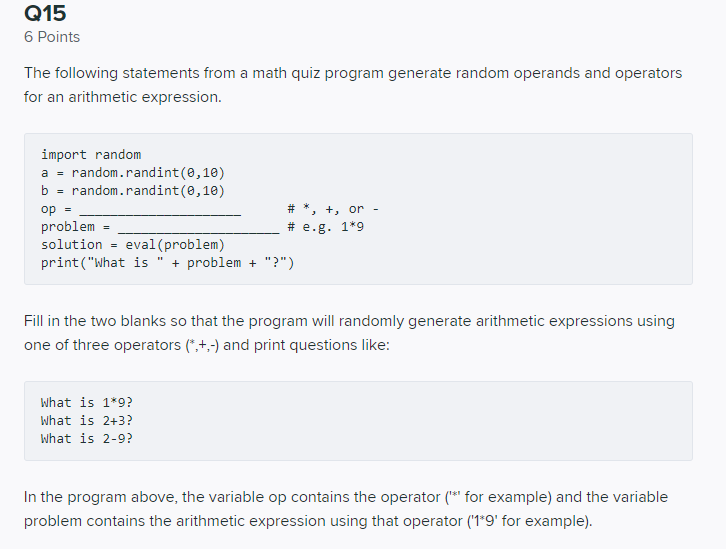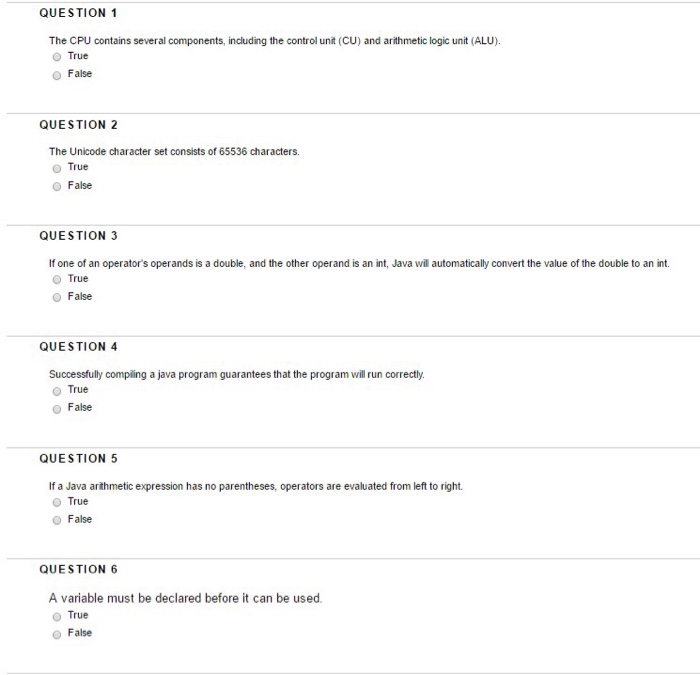Answered step by step
Verified Expert Solution
Question
1 Approved Answer
Q15 6 Points The following statements from a math quiz program generate random operands and operators for an arithmetic expression. import random a =


Q15 6 Points The following statements from a math quiz program generate random operands and operators for an arithmetic expression. import random a = random.randint(0,10) b = random.randint(0, 10) op = problem = solution = +, or # e.g. 1*9 eval (problem) print("What is " + problem + "?") Fill in the two blanks so that the program will randomly generate arithmetic expressions using one of three operators (*+,-) and print questions like: What is 1*9? What is 2+3? What is 2-9? In the program above, the variable op contains the operator ("** for example) and the variable problem contains the arithmetic expression using that operator ('1*9' for example). QUESTION 1 The CPU contains several components, including the control unit (CU) and arithmetic logic unit (ALU). True False QUESTION 2 The Unicode character set consists of 65536 characters. True False QUESTION 3 If one of an operator's operands is a double, and the other operand is an int, Java will automatically convert the value of the double to an int. True False QUESTION 4 Successfully compiling a java program guarantees that the program will run correctly. True False QUESTION 5 If a Java arithmetic expression has no parentheses, operators are evaluated from left to right. True False QUESTION 6 A variable must be declared before it can be used. True False
Step by Step Solution
There are 3 Steps involved in it
Step: 1

Get Instant Access to Expert-Tailored Solutions
See step-by-step solutions with expert insights and AI powered tools for academic success
Step: 2

Step: 3

Ace Your Homework with AI
Get the answers you need in no time with our AI-driven, step-by-step assistance
Get Started


